Soccer Field Grass: The Unsung Hero of the Game
Published: 17 Jan 2024
Are you a soccer enthusiast and wonder about how important is the soccer field? Being a true die-hard fan, you should understand the crucial role in the game, but it often goes unnoticed. We will explore some best soccer field grass and its significance as it impacts the players, the game, and the overall experience. So, grab your favorite soccer jersey, lace up your boots, and let’s dive into the world of soccer field grass!
Best Grass Seed For Soccer Field
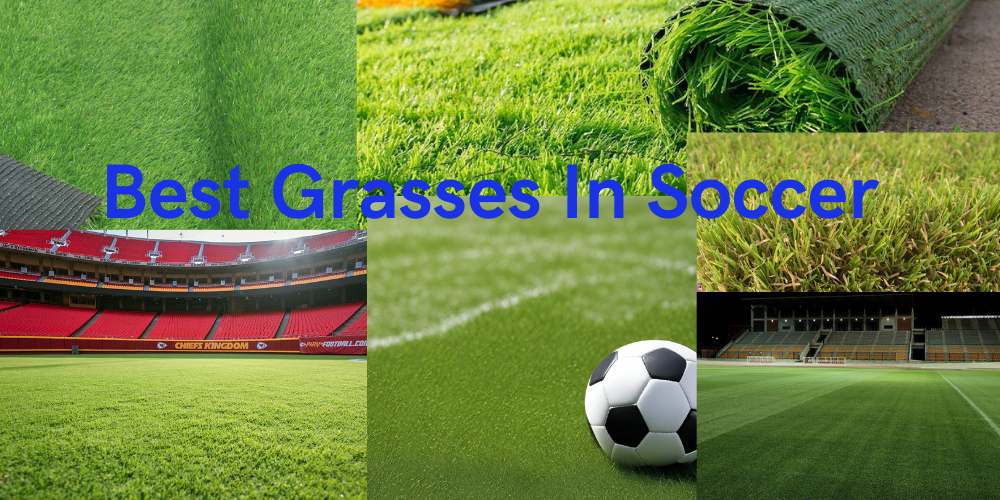
Not all grass is created equal, and the choice of grass for a soccer field can impact gameplay and maintenance. Several grass types are commonly used, each with its own advantages and challenges.
- Bermuda Grass.
- Kentucky Bluegrass.
- Ryegrass
1. Bermuda Grass
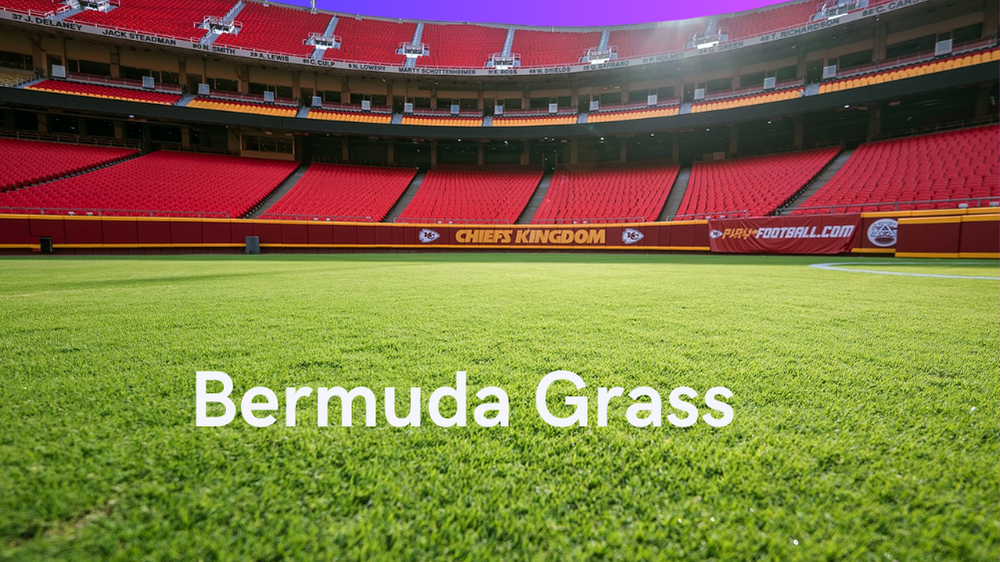
Bermuda grass is the go-to choice for the southern climate. Its ability to withstand high temperatures and intense sunlight makes it ideal for fields in regions with hot climates. Bermuda grass is known for its excellent recovery rate, meaning it can quickly bounce back from damage caused by player foot traffic. With proper maintenance, this grass type can provide excellent playability throughout the season.
2. Kentucky Bluegrass
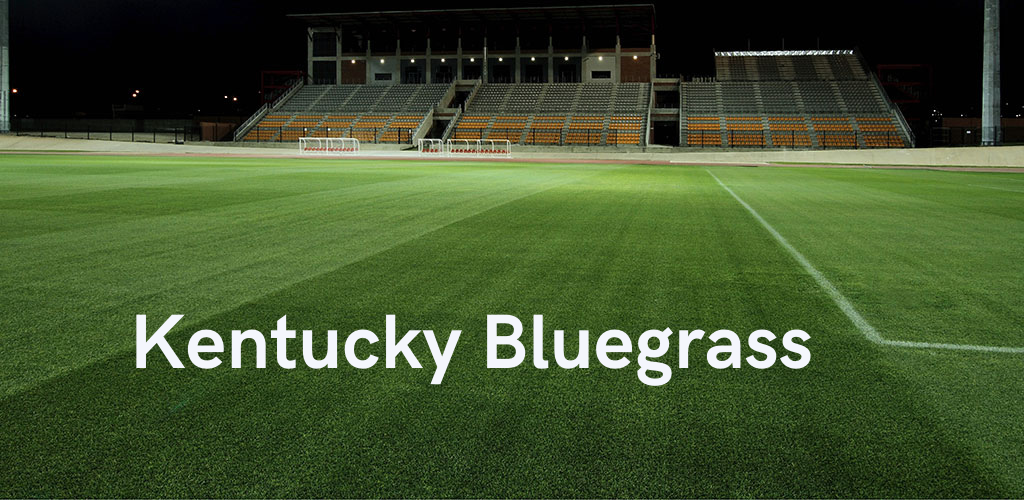
Kentucky Bluegrass is a popular choice for cool-season soccer fields in regions with moderate climates. Its adaptability to various soil conditions and ability to withstand heavy foot traffic makes it a durable option.
However, Kentucky Bluegrass requires more maintenance than other grass types. It is slightly longer than other seed grass and not going to slow down the ball. Another reason to stand out from others is its vibrant green and dark blue hue.
3. Ryegrass
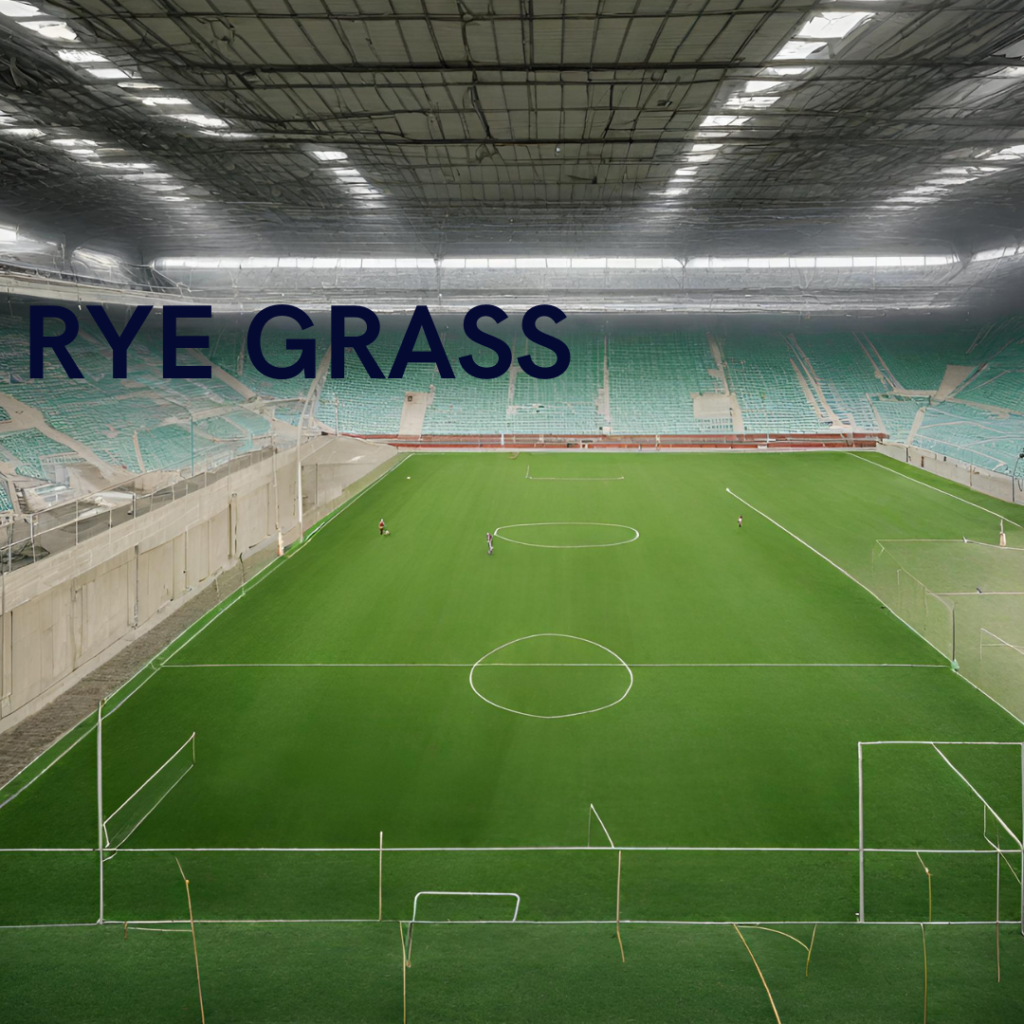
Ryegrass is often used in cooler temperature and it is fast growing grass form a very dense setup overall. Due to its quick recovery it is good for high level soccer. It provides a vibrant green color and offers good wear tolerance. Ryegrass helps keep the field looking lush and healthy even during the winter season.
Best Artificial Grass Soccer Field
Artificial grass has changed the world of soccer that it provides low maintenance surface and high performance. Numerous types of fake grass soccer fields are available with their unique features and benefits. Some of the best artificial grass soccer field on the basis of yarn are as follow:
- Nylon Grass.
- Polyethylene.
- Polypropylene.
- Hybrid Grass.
Nylon Grass
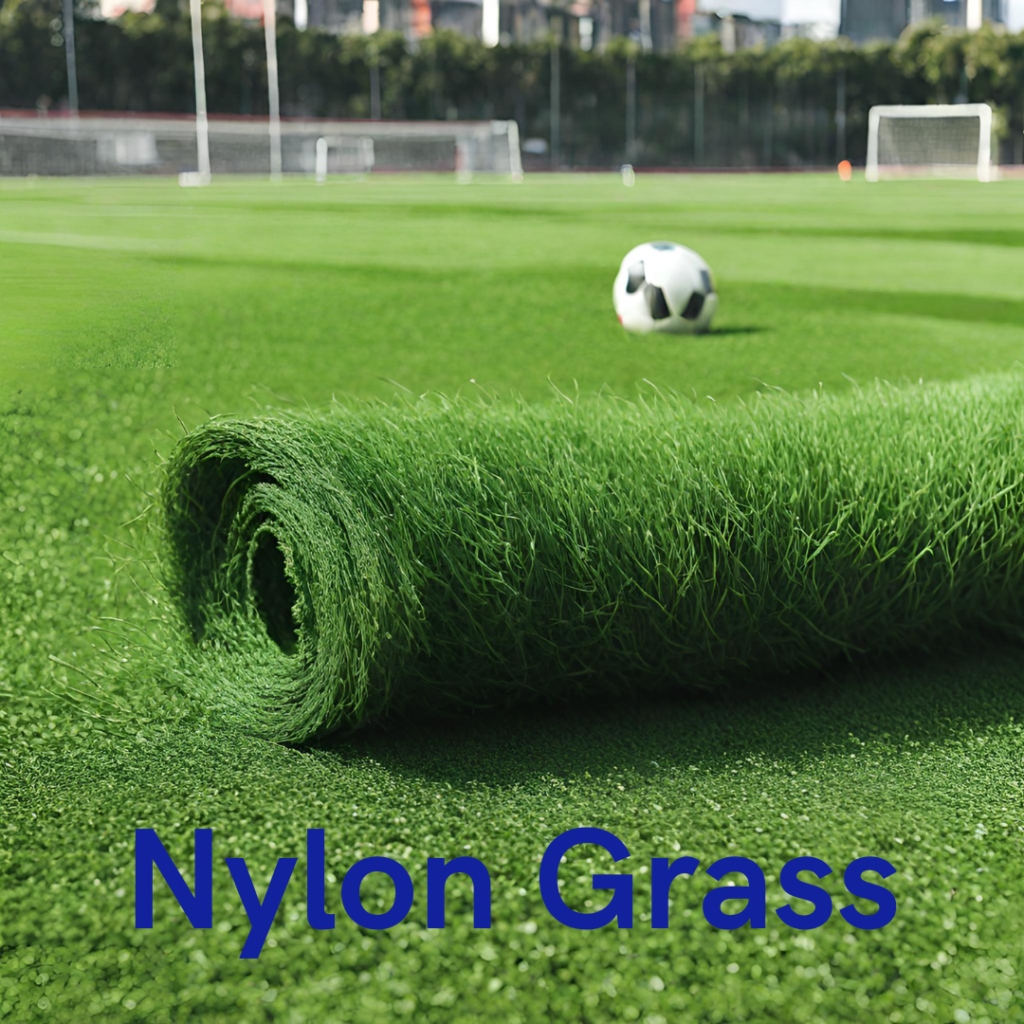
Nylon grass is one of the most durable options for soccer fields due to its springiest and most resistant to UV radiation. It bears heavy foot traffic and offers remarkable resistance to wear and tear, and it’s costly. It can withstand heavy foot traffic and offers excellent resistance to wear and tear. Even after continuous use, it retains its shape and appearance. Artificial grass made of Nylon provides:
- Consistent playing surface.
- Ensuring that players can make accurate passes.
- Good ball control.
Polyethylene Grass
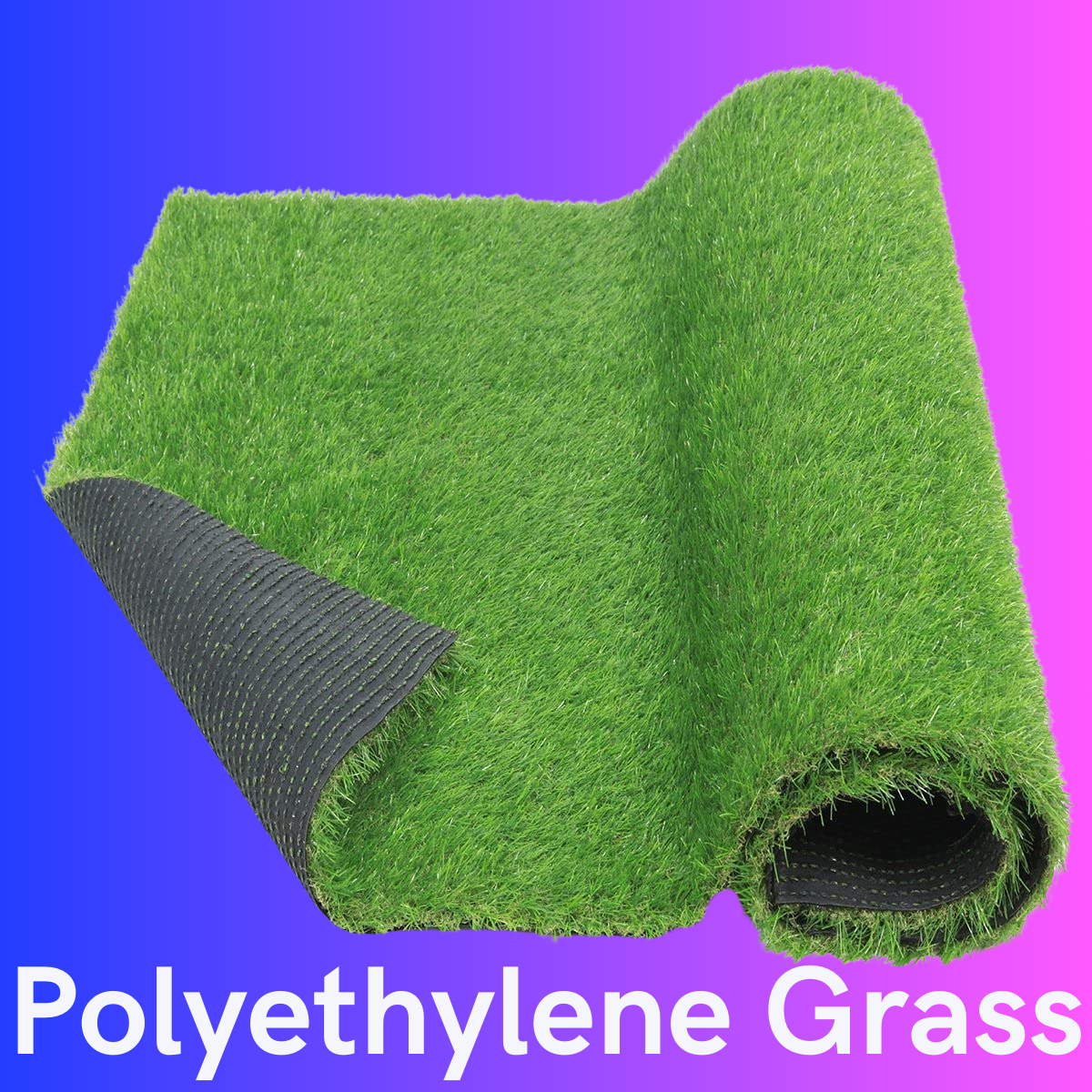
Another popular choice for an artificial grass field is polyethylene grass due to its natural and soft feel. It mimics the look and texture of real grass and is less expensive than Nylon grass. It is an eco-friendly option and provides a comfortable playing experience. It offers:
- Maximum resilience to UV radiations.
- Antimicrobial backing.
Polypropylene Grass
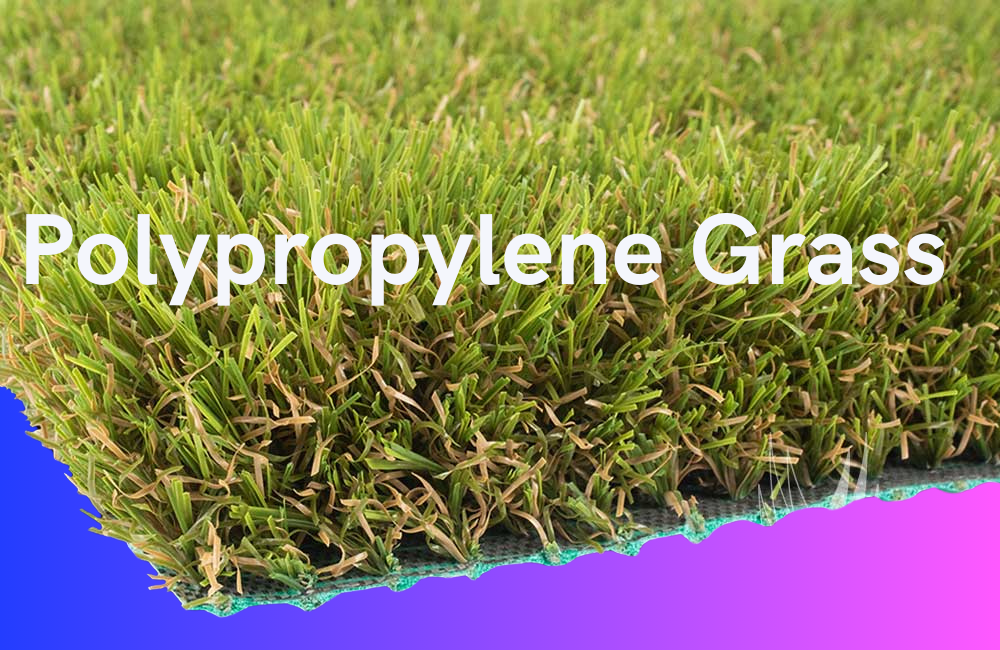
Polypropylene grass is the thinnest material and does not hold high traffic. It does not withstand high temperatures and has more maintenance issues. This one is the ideal and budget-friendly choice if you are making a soccer complex in a cool climate.
Hybrid Grass

Hybrid grass combines natural grass with artificial fibers to create a resilient and long-lasting playing surface. This type of grass provides the benefits of both natural and artificial grass. It offers excellent durability, requires less maintenance compared to natural grass fields, and provides a consistent playing surface. Hybrid grass is often used in professional soccer stadiums due to its exceptional performance.
The Player’s Best Friend: Impact on Performance
The quality of the soccer field make or break the game. Players give their best when they have the right conditions. The grass on the field directly affects the players’ performance in numerous ways.
1. Traction and Ball Control
2. Speed and Ball Roll
3. Injury Prevention.
Conclusion
When you watch a thrilling soccer match next time appreciate the role of the grass beneath the players’ feet. Soccer field grass may seem ordinary, but it is a vital element that impacts the game in ways we often overlook.
Understanding the different grass types and their maintenance requirements can help ensure an optimal playing surface. Whether it’s the natural green of Bermuda or the synthetic resilience of artificial turf, soccer field grass deserves recognition as the unsung hero of the beautiful game. So, let’s give a round of applause to the grass that sets the stage for soccer glory!
Are soccer field real grass?
All soccer fields are not real grass. Some of them use artificial soccer grass fields to improve all-weather playability and durability, but most players perform on natural grass.
How to build a grass soccer field?
To build a soccer field, first, prepare the site by cleaning and leveling the area and proper drainage. After that, choose a perfect turf based on requirements.




